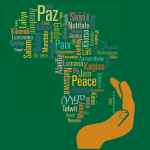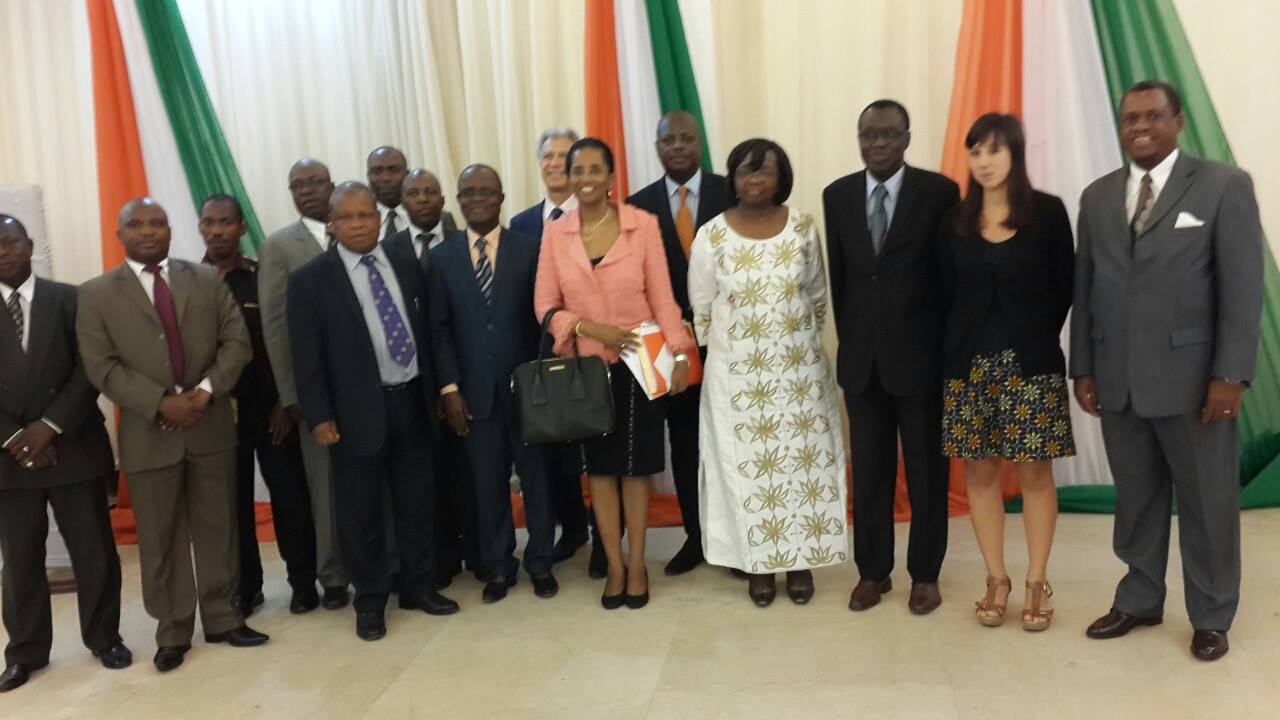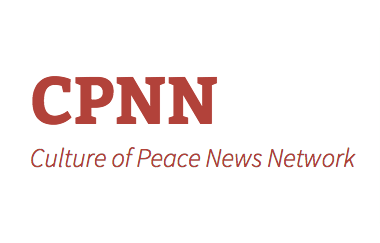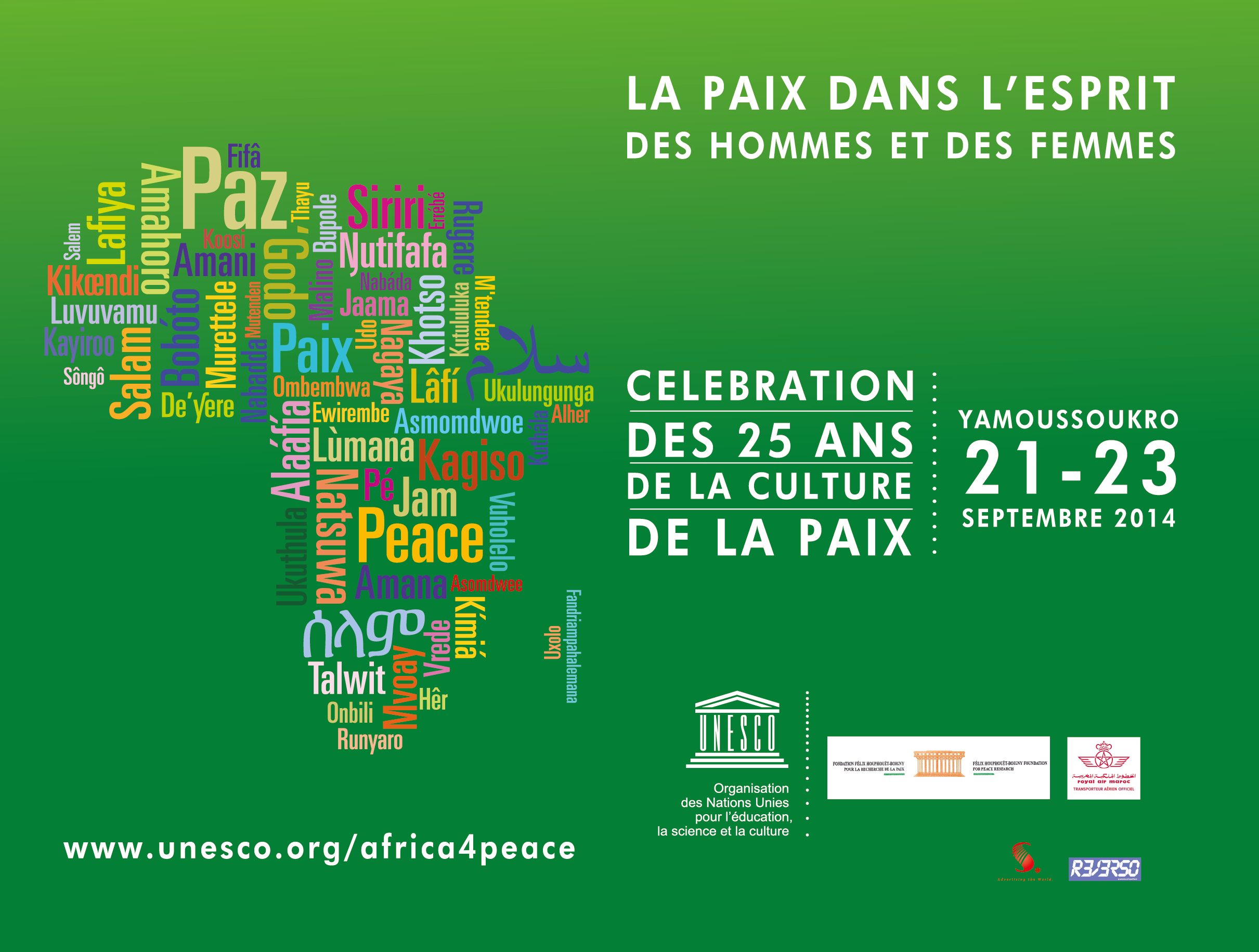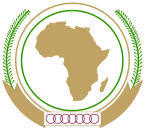-
Welcome to the
Network of Foundations and Research Institutions for the Promotion of a Culture of Peace in Africa
-
The Network's Meetings
News
Call for Signature of the Petition for the Creation of an Appropriate United Nations Structure for the Inter-Religious and Intercultural Dialogue for Peace and Development
A little more than a year ago, on the impetus of Professor Albert Tévoédjrè, African academic, politician of Benin, President and founder of the Pan-African Center for Prospective Social Studies (CPPS), former Special Representative of the Secretary General of the UN in Côte d 'Ivoire, renowned personalities from diverse backgrounds: culture, social commitment and varied professional experiences agreed to take over with the government of Benin international support for the African Education Initiative peace and development through inter-religious and intercultural dialogue.
These personalities, in view of the tragic impasse of the military responses to the terrors which continue to mourn the planet every day, accept to offer their experience, reputation and lucid generosity with the aim of converging intelligences and consciences for the public welfare . They want each country to stand out and shine a unifying focal point of creative energies to make the African Initiative a new chain of human security beyond survival defense operations. Other figures of the struggle for man will be welcome to constitute the audacious and powerful network of engineers expected of a more credible mechanism of peace-making by joint actions, jointly responding to the immediate needs of the populations.
Through this movement, we wish to associate with this initiative citizens of the world animated by the same desire for "peace by living together" despite our differences.
The goal is to collect the largest number of signatures in Africa and around the world to bring the UN Secretariat to action by creating an appropriate federative structure for inter-religious and intercultural dialogue for the peace to:
Responsibilities of the structure
- create a framework for dialogue between inter-religious and intercultural dialogue in member countries,
- to promote meetings between young people from various socio-cultural and denominational backgrounds in order to facilitate and strengthen the mechanisms of "living together",
- create focal points to network at country level and give priority to joint development actions erected and managed by inter-religious and intercultural groups,
- to develop joint social innovation projects based on inter-religious and intercultural dialogue, leading to the achievement of a common social minimum of genuine development for all citizens in every country in Africa and the world,
- multiply training centers and university institutes devoted to inter-religious and intercultural dialogue specially dedicated to joint actions of solidarity development,
- contribute to giving substance to the proposal for an international day devoted to inter-religious and intercultural dialogue as a vehicle for development.
Call launched in Cotonou, Benin, on Sunday July 3, 2016
We are pleased to be one of the signatories to this petition.
TO SIGN THIS PETITION: Go to the following link: http://www.petitionpourlapaix.com/#gkMainbodyTop
Workshop on Validation of the Feasibility Study on the Panafrican School of Peace
The validation workshop for the feasibility study on the Panafrican Peace School was held on 20 and 21 June 2016 at our headquarters in Yamoussoukro. Placed under the patronage of the Ivorian State, it was organized by our institution in partnership with UNESCO and the African Union. In addition to the three organizing entities, the workshop was attended by the following institutions and structures:
- the Presidency of the Republic,
- the Prime Minister,
- the Ministry of Foreign Affairs,
- the Ministry of Higher Education and Scientific Research,
- the Ministry of National Education,
- the Ministry of Culture and the Francophonie,
- the Félix Houphouët-Boigny University,
- the UNESCO Chair for Culture of Peace at FHB University,
- the Africa Department of UNESCO,
- the UNESCO Office in Abidjan,
- the Permanent Delegation of Côte d'Ivoire to UNESCO,
- the Representation of the African Union in Côte d'Ivoire,
- the Academy of Sciences, Arts, African Cultures and Diasporas (ASCAD),
- the Center for Study, Research and Action for Peace (CERAP),
- and the Rotary Center for Peace.
The work has included the participation of consultants for the feasibility study, special guests, diplomats and senior officials. The objectives of this work were to:
- Consider the feasibility study of the Pan-African School of Peace,
- Present the prospects of the project,
- Make recommendations for the rapid implementation of the project.
The opening ceremony consisted essentially of speeches, the first of which was delivered by Professor Jean-Noel Loucou, General Secretary of the Félix Houphouët-Boigny Foundation for Peace Research. He first welcomed all the participants and then presented the subject of the workshop. He expressed his gratitude to the President of the Republic of Côte d'Ivoire and to the Prime Minister for his unwavering support for the project. He concluded his remarks by thanking and thanking all participants for their dedication to this cause.
Mr. Matoko Firmin, Director of UNESCO's Africa Department, on behalf of UNESCO, thanked the authorities of Côte d'Ivoire for their support of this project and the FHB Foundation for the quality of its reception. He stressed that the choice of the foundation to shelter this school, meets the ambition of President Felix Houphouët-Boigny to promote peace through it. He ended by recalling UNESCO's commitment alongside Côte d'Ivoire and the foundation for the happy ending of this noble idea.
Mr. Kouassi Yao Charles, representing Prime Minister Daniel Kablan Duncan, read the speech of the latter. The Prime Minister congratulated the foundation and its general secretary for all the hard work. Finally, Mr. Kouassi Yao declared the workshop open.
Following the presentations by the three consultants for the feasibility study, namely: Ambassador Akinsanya Olusegun, Professors Akindes Simon and Lou Bamba Mathieu, the workshop made recommendations for the establishment of the first pan-African school for peace in within the Fondation Félix Houphouët-Boigny for the Search for Peace for leaders, decision-makers and community leaders. These recommendations are based on three main points:
- the objectives and content of training and research,
- the methods of implementing the school,
- funding and partnerships.
These recommendations, adopted unanimously by the validation workshop of the feasibility study of the Panafrican School for Peace, will be the subject of a draft communication to the Council of Ministers. The African Union and UNESCO will be duly informed by official means of the decision of the Council of Ministers.
Project of the Panafrican School of Peace: the State of Advancement on 06/01/2016
The project of the Panafrican School of Peace aims to meet three major expectations:
- The involvement of Côte d'Ivoire, through the Félix Houphouët-Boigny Foundation for Peace Research, in the research, preservation, maintenance and promotion of peace in Africa and in the world.
- The creation, within the FHB Foundation, of a high-level training and research center on Peace.
- International cooperation for the culture of peace, bringing together various partners, be they international organizations such as the African Union, UNESCO, universities or research centers.
The School would strengthen the capacity of political, economic, cultural, religious and military decision-makers; civil society actors, groups of people or institutions wishing to train themselves in the culture of peace. Under the project, a proportion of women at least equal to that of men is to be expected. This is justified by the important role of women in the family and society in inculcating, in particular children, the values of peace and citizenship.
This briefing provides an update on the status of the Pan-African Peace School project under the aegis of the African Union, UNESCO and the Government of Côte d'Ivoire.
I - HISTORY OF THE PROJECT
1.1 The recommendation of the Network of Foundations and Research Institutions
On September 20 and 21, 2013, at the headquarters of the African Union, 45 foundations and research institutions have created, under the aegis of the African Union and UNESCO, the Network of foundations and research institutions for the promotion of a culture of peace in Africa. At their meeting held in Yamoussoukro from September 21 to 23, 2014, on the occasion of the celebration of the 25th anniversary of the birth of the concept of culture of peace, the Network recommended to the Félix Houphouët-Boigny Foundation for the the establishment of a high-level Pan-African Center under the aegis and with the cooperation and support of the AU and UNESCO.
1.2. The decision of the African Union
For example, at the 24th Summit of Heads of State and Government held in Addis Ababa on January 20 and 21, 2015, the African Union adopted, under the items proposed by the Member States, n ° Assembly / Dec. 558 (XXIV), point G: 22 (ii) requesting the Commission of the African Union to study with UNESCO and the Government of Côte d'Ivoire the possibility of establishing a "School of Peace".
1.3. The resolution of the Executive Board of UNESCO
The creation of a "School of Peace", known as the "Pan-African High Level Training and Research Center for the Culture of Peace", presented by Côte d'Ivoire to the 197th session of the Executive Council of the " UNESCO, held from 07 to 22 October 2015, was adopted unanimously by the members of the Executive Board.
In the decision, the Executive Council:
- takes note of the establishment of the Center in Yamoussoukro (Côte d'Ivoire) under the aegis of the African Union and UNESCO;
- requests the Director-General to take appropriate measures and to put in place mechanisms for its implementation and monitoring;
- recommends that the General Conference adopt the establishment of the Center at its 38th session in November 2015;
- recommends that the General Conference delegate to the Executive Council the authority and prerogatives for the establishment of the Center as a category 2 UNESCO Center.
Since the adoption of these decisions and resolutions, the Government of Côte d'Ivoire has initiated the effective implementation of the project.
II - STATUS OF THE PROJECT
2.1. The tripartite technical meeting
In pursuance of this decision to establish the Peace School, the Ivorian Government organized a tripartite technical meeting (Côte d'Ivoire-African Union-UNESCO) on 21 and 22 May 2015 in Abidjan, which elaborated:
- the concept note of the project;
- the strategy and mechanisms for its financing;
- the roadmap for its implementation;
A steering committee was set up following this meeting. It is composed of the Ministry of Foreign Affairs, the UNESCO Office in Abidjan, the Ivorian National Commission for UNESCO and the Félix Houphouët-Boigny Foundation for Peace Research. In particular, it is responsible for designating a scientific committee which would include a high-level expert from each African region; and to elaborate the terms of reference for the feasibility study of the School of Peace.
2.2. Funding for the feasibility study
The study will be conducted by three consultants (one anglophone and two francophone) for a two-month period. It requires a budget of US $ 35,000 to be provided by the Government of Côte d'Ivoire. A communication was introduced in the Council of Ministers on 20 January 2016.
2.3. Selection of consultants
UNESCO undertook a limited consultation which allowed selection of three consultants. The following were selected:
- Mr. Olusegun AKINSANYA, Nigerian, Regional Director of the Institute for Security Studies (Addis Ababa).
- Mr. Simon AKINDES, Benin, Associate Professor of Law and Political Science at the University of Wisconsin-Parkside (United States).
- Mr. Mathieu Lou BAMBA, Professor of Philosophy at the Félix Houphouët-Boigny University, Secretary-General of the UNESCO National Commission (Côte d'Ivoire).
III - DILIGENCE TO BE EXECUTED
3.1. The validation workshop of the feasibility study
As soon as the consultants have completed the feasibility study, a validation workshop will be held in Côte d'Ivoire in June 2016. The validated feasibility dossier will be handed over to the Ivorian Government for adoption by the Council of Ministers. It will then be forwarded to the Commission of the African Union for validation by the Specialized Technical Committee of the Ministers of Education of the African Union.
3.2. The inclusion on the agenda of the Conference of Heads of State and Government
The dossier of the School of Peace was to be submitted to the Conference of Heads of State and Government to be held on 17 and 18 July 2016 in Kigali, Rwanda.
3.3. The signing of the Tripartite Framework Agreement
A Memorandum of Understanding for the School of Peace will be signed between the African Union, UNESCO and the Government of Côte d'Ivoire. This signature can take place either in Addis Ababa, at the headquarters of the AU or in Côte d'Ivoire.
CPNN (Culture of Peace News Network) bulletin of June 1, 2016
REFORMING THE UNITED NATIONS
Since its creation over 70 years ago, the United Nations has been the hope of mankind “to save succeeding generations from the scourge of war.” But more and more, we are losing hope that in its present form it can succeed. This was especially evident in recent weeks when the great powers did not bother to send high-level delegations to the UN’s Humanitarian Summit despite the fact that 60 other countries sent their heads of state. While Germany was represented by its Chancellor Angela Merkel, the other great powers were essentially absent: Canada, France, Italy, Japan, the United Kingdom, the United States, Russia and China.
Therefore, it is not surprising that there is a rising chorus of demands for reform of the United Nations.
The most dramatic and far-reaching demand comes from Africa. This month the Pan-African Parliament, with representives from the 54 countries of Africa, has called upon the African Union to support its demand for a new UN body, a United Nations Parliamentary Assembly. The Parliament’s President explained that "It is long overdue that 'We, the Peoples,' as the UN Charter begins, have more say in global affairs. For this purpose, a UNPA needs to be established." This could become a powerful voice for peace. Instead of reflecting the policies of Member States with their military budgets and military policies, the proposed Assembly would be composed of representatives of bodies directly elected by the people and without direct responsibility for military institutions.
Another call for extensive reform comes from a group including former UNESCO Director-general Federico Mayor. Their joint declaration calls for a "new UN System" with a General Assembly of 50% of States representatives and 50% of representatives of civil society, and adding to the present Security Council and Environmental Council and a Socio-Economic Council. In all cases, no veto but weighted vote.
Many calls for reform consider that the present Security Council, with veto powers by the five Permanent members, the victors of World War II, is outmoded and ineffective in dealing with today’s global problems.
There are ongoing meetings of the Intergovernmental Negotiations on Security Council Reform, but they are complicated by rivalries among the Member States. At the most recent meeting at the beginning of May, India called for additional Permament members, including themselves, Brazil, Japan and Germany, thus including the losers as well as the winners of World War II. But immediately there were objections from India’s rival Pakistan and from Japan’s rival North Korea, as well as from another group of 13 countries led by Italy. Another proposal was put forward by Ireland for a new category of Security Council members with an 8 year term. They proposed 6 seats in this category, with 2 each from the African and Asia-Pacific group, and 1 each from WEOG (Western Europe and Others Group) and GRULAC (Group of Latin American and Caribbean Countries).
At the recent Humanitarian Summit, the Arab League, which consists of 22 member states, including Algeria, Egypt, Iraq, Jordan, Qatar and Saudi Arabia, called for limitation on the veto power of the Permanent Security Council Members, echoing a similar demand by Turkish President Erdogan. This, too, was complicated by inter-state rivalries as their remarks were directed only against the use of the veto by Russia with regard to the war in Syria.
The Elders, the group of former heads of state and international agencies that was formed several years ago around Nelson Mandela, has made a series of recommendations regarding reform of the Security Council. They call for a new category of Council members with longer terms to counter-balance the five Permanent members, a pledge to restrict the use of their veto and more involvement of the civil society,
Another proposal of the Elders is for a more independent UN Secretary-General. This proposal is echoed in conclusions of the recent United Nations High Level Thematic Debate on Peace and Security, and it is already being implemented to some extent in new procedures to choose the next Secretary-General.
But the question remains: are these proposals radical enough to enable the UN "to save succeeding generations from the scourge of war ?" In the view of the CPNN coordinator, we need a more radical approach; see his blog.
The Network Meetings
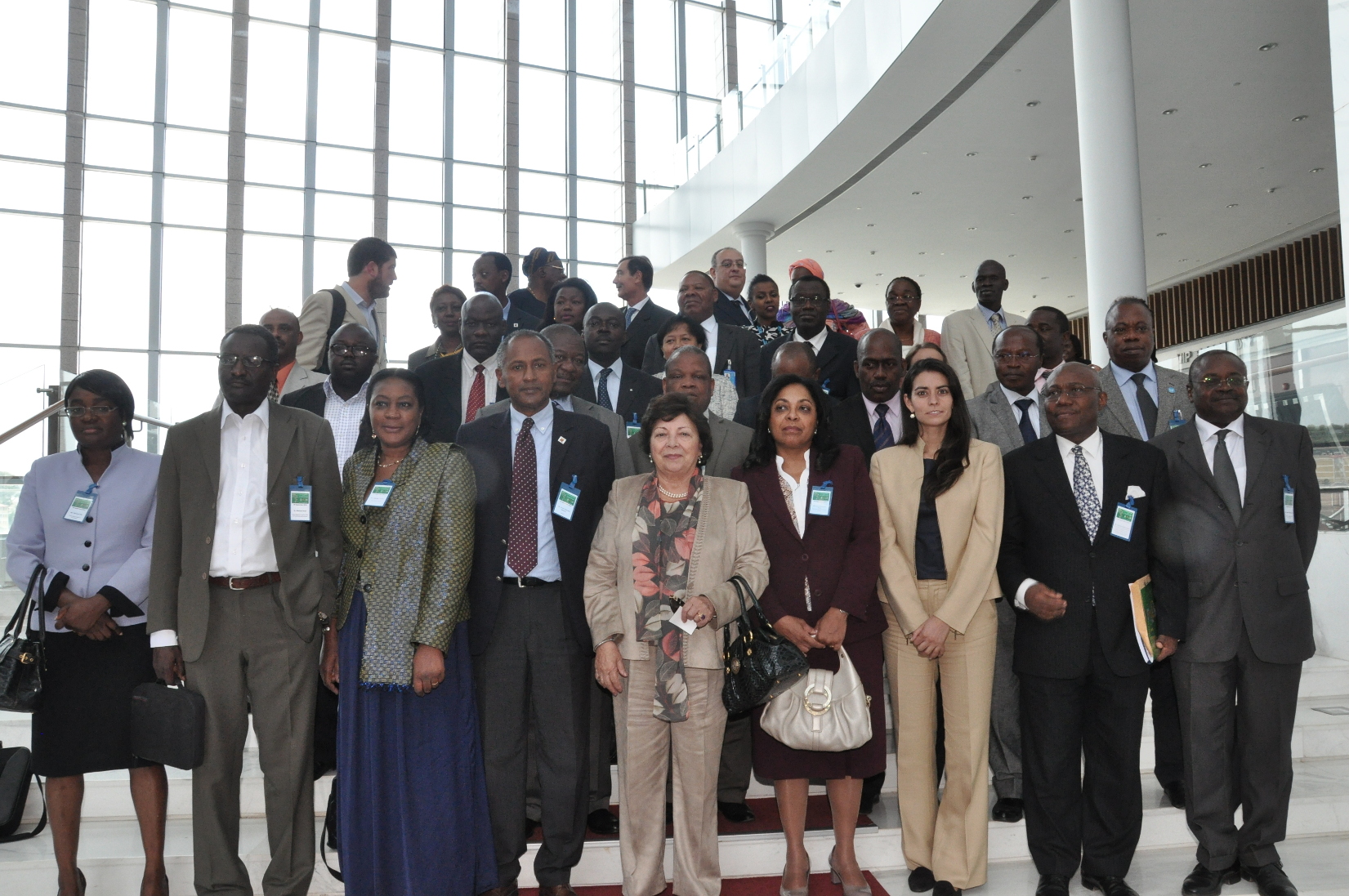
Links
FESA-UNESCO International Conference, December 12-13, 2016, Luena, Angola
Third Meeting of the Network September 11-12, 2015 in Soyo, Angola
Second Meeting of the Network, from September 21 to 24, 2014 in Yamoussoukro, Côte d'Ivoire
Network Creation Meeting on September 20, 2013 in Addis Ababa, Ethiopia
Text Resources
- Call for Papers HARIS 2 JUNE 2021
- Report of the 5th Meeting of Members of the Network held on 21 September 2019 in Angola on the sidelines of the Luanda 2019 Biennale for the Culture of Peace
- Activity Report 2019
- Program of the Luanda Biennale
- DRC the six-day war in Kisangani
- Insecurity in the Masisi in Eastern DR Congo
- General Report of the Houphouet Boigny Foundation International Conference, October 20, 2018
- RAPPORT FINAL DE LA CONFERENCE FESA-UNESCO SUR LE THEME "PREVENTION DES VIOLENCES ET PROMOTION DE LA CULTURE DE LA PAIX EN PERIODE ELECTORALE EN AFRIQUE" LES 12 ET 13 DECEMBRE 2016 A LUENA EN ANGOLA
- BULLETIN DE L’UNION AFRICAINE (UA) ET DE LA CORNE DE L’AFRIQUE (HOA) du 1er juin au 31 Août 2017
- LES STATUTS DU RÉSEAU
- RAPPORT D'ACTIVITÉS 2014 - 2015 DU RÉSEAU
- RAPPORT D'ACTIVITÉS 2015 - 2016 DU RÉSEAU
Welcoming Remarks
You are welcome to visit the website of the Network of Foundations and Research Institutions for the Promotion of a Culture of Peace in Africa.
The Network was created at the end of the Addis Ababa meeting on September 20 and 21, 2013 with a view to "creating a continental and sustainable peace movement capable of mobilizing African States, the private sector, African artists and leaders, international organizations and regional development actors as well as NGOs and grassroots associations". It is currently composed of 44 African and non-African organizations listed here.
You will find on our website articles, publications, photos and videos concerning the promotion of the Culture of Peace on the African continent. We also keep you informed about upcoming events.
